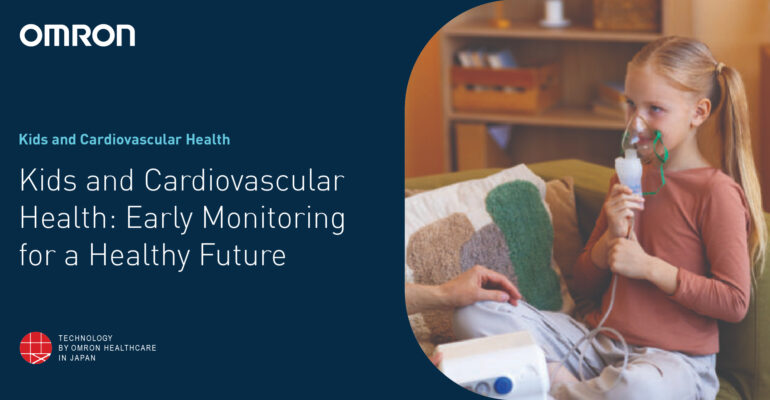Kids and Cardiovascular Health: Early Monitoring for a Healthy Future
July 23, 2024 2024-09-17 12:25Kids and Cardiovascular Health: Early Monitoring for a Healthy Future

Kids and Cardiovascular Health: Early Monitoring for a Healthy Future
Cardiovascular health is often associated with adults, but it is recognized that maintaining a healthy heart begins early in life. Cardiovascular disorders in children, albeit less common, can have lasting consequences for their health and well-being. Early monitoring and proactive measures can set the stage for a healthier future. This blog explores the importance of early cardiovascular health monitoring in children and provides tips on keeping young hearts healthy.
The Importance of Early Monitoring
Early detection of cardiovascular issues can be crucial in managing and preventing long-term health problems. Conditions such as high blood pressure, cholesterol abnormalities, and congenital heart defects can sometimes be present from a young age. Regular monitoring can help identify these issues before they become more serious.
- High Blood Pressure: While high blood pressure is more common in adults, it can also occur in children, especially if there is a family history of hypertension or if the child is overweight. High blood pressure in children often doesn’t show symptoms but can lead to serious health conditions if not monitored and managed early.
- Cholesterol Levels: Elevated cholesterol levels can start early in life and increase the risk of developing heart disease later. Regular screening can help identify children at risk and allow for early intervention with lifestyle changes or, in some cases, medication.
- Congenital Heart Defects: Some children are born with heart defects that can affect cardiovascular health. Early diagnosis through routine check-ups and screenings can ensure that necessary treatments or interventions are started as early as possible.
Tools for Monitoring Cardiovascular Health in Children
Monitoring cardiovascular health in children involves a combination of regular check-ups and specific tools designed to assess heart health:
- Blood Pressure Monitors: Blood pressure monitoring, while less usual in regular pediatric care, is becoming increasingly important. The best blood pressure monitor for kids is often a pediatric-specific device that provides accurate readings while ensuring comfort. The digital blood pressure monitor is a good choice due to its ease of use and accuracy.
- Cholesterol Testing: Regular blood tests can help assess cholesterol levels and other indicators of cardiovascular health. These tests are usually recommended for a family history of high cholesterol or other risk factors.
- Physical Exams: Regular physical exams by a paediatrician can help identify any signs of cardiovascular issues. The healthcare provider will check for symptoms such as abnormal heart rhythms or signs of hypertension.
Encouraging a Healthy Lifestyle
In addition to monitoring, promoting a healthy lifestyle is critical to maintaining cardiovascular health in children:
- Balanced Diet: Encourage a diet rich in fruits, vegetables, whole grains, and lean proteins. Limiting processed foods and unhealthy diet can help maintain healthy cholesterol and blood pressure levels.
- Regular Exercise: Physical activity is vitally important for cardiovascular health. Aim for at least 60 minutes of moderate to vigorous exercise each day, including activities like playing sports, biking, or even brisk walking.
- Healthy Weight: Maintaining a healthy weight is necessary to reduce the risk of developing high blood pressure and cholesterol. Practice healthy eating habits and physical activity to support weight management.
- Limit Screen Time: Excessive screen time can contribute to a sedentary lifestyle and unhealthy diet. Setting limits on screen time and encouraging active play can promote better overall health.
Professional Guidance and Early Intervention
Consulting with healthcare professionals is crucial for effective monitoring and management of cardiovascular health in children. Paediatricians can provide guidance on when and how to start regular screenings based on family history and individual risk factors.
For parents concerned about their child’s cardiovascular health, visiting a specialist such as a pediatric cardiologist can provide further insights and recommendations. Early intervention and adherence to medical advice can help manage any identified conditions and support long-term heart health.
Conclusion
Early monitoring and proactive management of cardiovascular health in children are essential for ensuring a healthy future. By incorporating regular check-ups, using appropriate monitoring tools like the best digital blood pressure monitor, and encouraging a healthy lifestyle, parents can play a significant role in preventing cardiovascular issues and promoting overall well-being. Focusing on heart health at a young age can lead to general well-being and a healthier life for your child.






